Paradise On Earth
Nov 10, 2019 • 279 views
When Mughal Emperor Jehangir visited Kashmir in the 17th century, his then said words still flow in the air, “If there is a heaven on earth, it's here, it's here, it's here.” the same quote is often also credited to Amir-e-Khusru Dehluvi who said it is Persian,
Agar firdous baroye zameen ast, hami asto, hami asto hami ast.
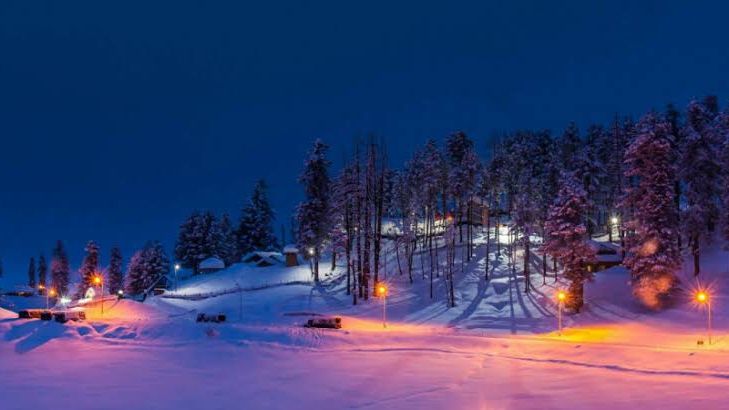
Winter in Gulmarg (Source: ibttimesindia.com )
Rightly so. If there’s any place on this planet that can be given the title of Firdous, it is Kashmir. There are so many reasons why this holds true. Below I have mentioned a few:
The Most Romantic Seasons:
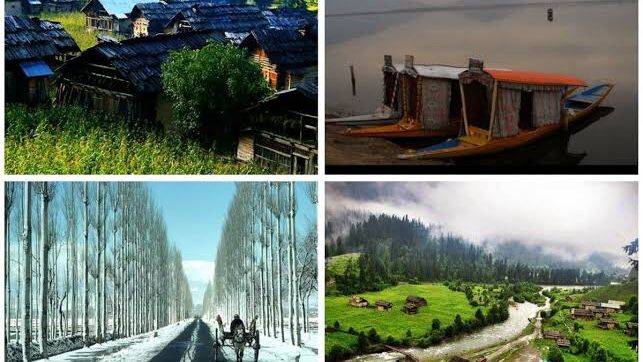
Kashmir is beautiful in every season. (Source: simplykashmir.com)
Kashmir is blessed with natural beauty and you can witness the most beautiful manifestations of earth’s seasons here. From blooming springs to colorful autumn and white Winterlands, Kashmir has it all. The lukewarm summertime alongside the banks of dal lake is perhaps what’s going to stay in your heart forever.
The Picturesque Landscapes:
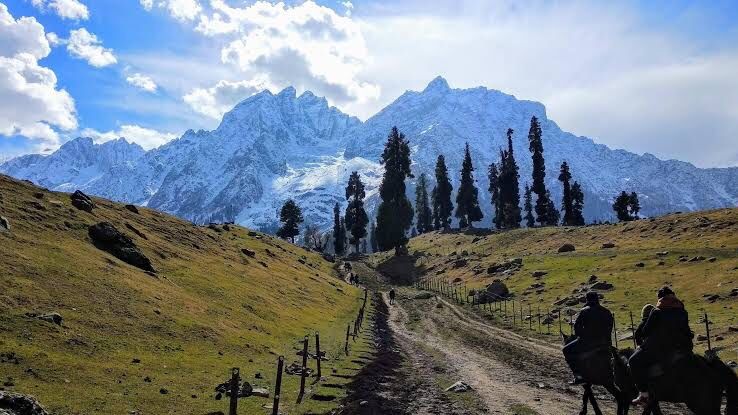
Kashmir has a magnificent landscape. (Source: reddit.com)
Those who have experienced Kashmir's beautiful landscapes will never wonder why Kashmir is called the paradise on earth. Each corner of Kashmir is packed with natural wonders. From the distant mountain range of Pir Panjal and thickly scented Kashmir cypress branches to the gushing rivers and green meadows, Kashmir’s landscapes will take your breath away.
The World’s Second-Highest Gandola Ride and Asia’s Largest Tulip Garden:
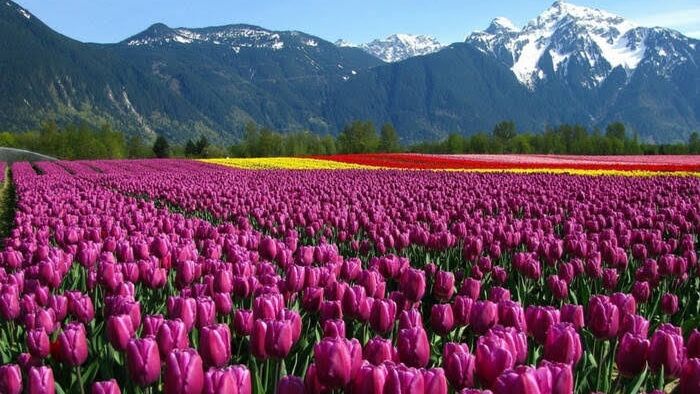
The Valley’s breathtaking Tulip Garden. (Source: traveltriangle.com)
Gulmarg Gondola is one of Kashmir's main attractions as it allows you to see panoramic views of the snow-capped Himalayas as it goes higher and closer to the Apharwat Peak. Moreover, Kashmir is home to Asia’s largest and most colorful tulip garden.
Adventure Sports:

The Valley offers a range of adventure sports. (Source: travelinggodotcom.wordpress.com)
From trekking the Great Lakes of Kashmir to skiing on the valley's exciting slopes, Kashmir enables adventurers to discover the magnificent Himalayas ' vast terrain.
Warmest Locals:
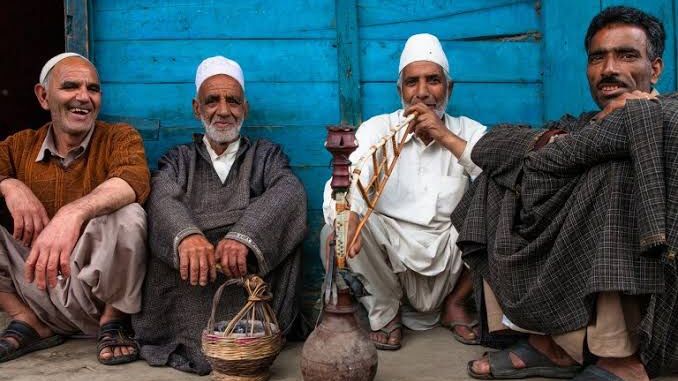
Kangar And Jajeer . (Source: sandeepachetan.com)
Despite their struggles that we’re all aware of, Kashmiris haven’t lost their “Insaniyat” and remain to be the warmest and hospitable locals.
But one question intrigues me, is the paradise living up to its name for them?
Where are you now? Who lies beneath your spell tonight?
Whom else from rapture’s road will you expel tonight?
Those “Fabrics of Cashmere—” “to make Me beautiful—”
“Trinket”—to gem—“Me to adorn—How tell”—tonight?
I beg for haven: Prisons, let open your gates—
A refugee from Belief seeks a cell tonight.
God’s vintage loneliness has turned to vinegar—
All the archangels—their wings frozen—fell tonight.
Lord, cried out the idols, Don’t let us be broken;
Only we can convert the infidel tonight.
Mughal ceilings, let your mirrored convexities
multiply me at once under your spell tonight.i
He’s freed some fire from ice in pity for Heaven.
He’s left open—for God—the doors of Hell tonight.
In the heart’s veined temple, all statues have been smashed.
No priest in saffron’s left to toll its knell tonight.
God, limit these punishments, there’s still Judgment Day—
I’m a mere sinner, I’m no infidel tonight.
Executioners near the woman at the window.
Damn you, Elijah, I’ll bless Jezebel tonight.
The hunt is over, and I hear the Call to Prayer
fade into that of the wounded gazelle tonight.
My rivals for your love—you’ve invited them all?
This is mere insult, this is no farewell tonight.
And I, Shahid, only am escaped to tell thee—
God sobs in my arms. Call me Ishmael tonight.
This poem written in a characteristically evasive ghazal style is perhaps my favorite of Agha Shahid Ali’s work. Agha brings out the spiritual allusions and its overlapping figures of national exile, homelessness, religious disillusionment, and hopeless love, each one of which stands for the rest in a sort of playfully flighty lament, a painfully circuitous play. For me, Agha is one of the very few people who have done justice to Kashmir and how painfully beautiful it is, in their writing. ‘Tonight’ is a befitting example.
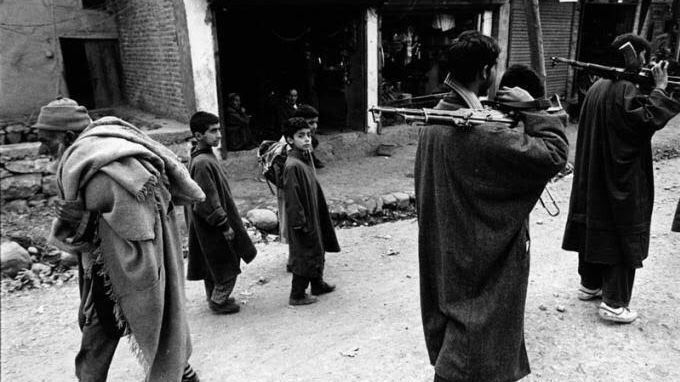
The 1989 Insurgency. (Source:kashmirica.wordpress.com )
Agha wrote this poem in the reflection of the 1989 turmoil in Kashmir. It saddens my heart to write that the turmoil continues even today. But I’m also happy that he didn’t live to see how so many people now openly rejoice our suffering.
I’m probably not the perfect person to be writing about Kashmir since I haven’t lived there for so long. But I would like to take advantage of the fact that I was born there and that I call it my motherland. Mouj Kasheer (mother Kashmir) as we Kashmiris call her, is a small piece of heaven settled in the Himalayas. Surrounded by soaring mountains and sheltered by the divine skies, Kashmir is home to 8 million Kashmiris, all human, I must add. Having lived for nearly two decades myself I can give you testimony that none of these humans have experienced peace for long. The reason you may ask, well I don’t know. Or perhaps I don’t want to admit it. The truth being so bitter, I’m afraid of chocking myself.
But I for sure am privileged. Mainly because I don’t live in Kashmir. My brothers and sisters, living there, don’t have any choice, they have to choke. Sometimes on their unfulfilled dreams, sometimes on their ever-present fear, and sometimes on their blood.
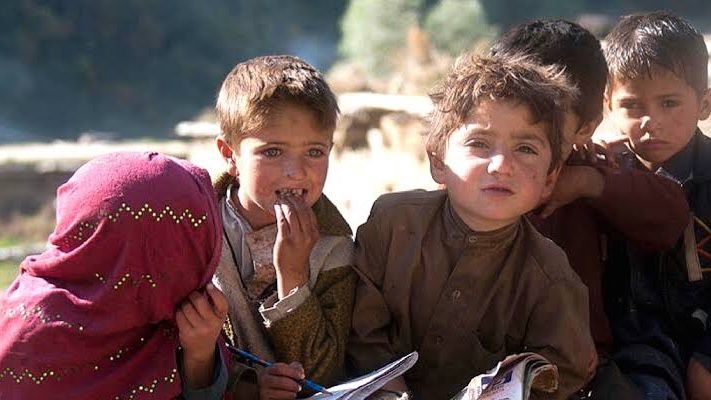
Who is thinking about the children of Kashmir? (Source: thebetterindia.com)
However, I would like you all to know that my brothers and sisters are the strongest people I know. Despite being obstructed in the worst of ways, they continue to not just survive but live. Now that postpaid phone services have been restored in the valley (Should I thank the heavens for this restoration or smash some idols that it had to be restored in the first place?), I sometimes get to hear them. They tell me how they’re surviving without internet and social media (since this is what intrigues the millennial in me the most). Seemingly, the boys have taken refuge in carom, chess, badminton, and volleyball, which they all play in “Khal”, a vacant ground in my nieghbourhood. Since their three or four years degrees are now probably going to take five-six years to complete they have shifted their focus and are somehow trying to enjoy their “youth”. My sisters, however, find days a little harder to go by. One of them has taken to books, and now she’s reading some for the second time ( Fun fact: the shops are usually closed, so she can’t buy more so easily). The others play badminton and what not in their gardens and apparently, all of my aunts have taken to gardening.
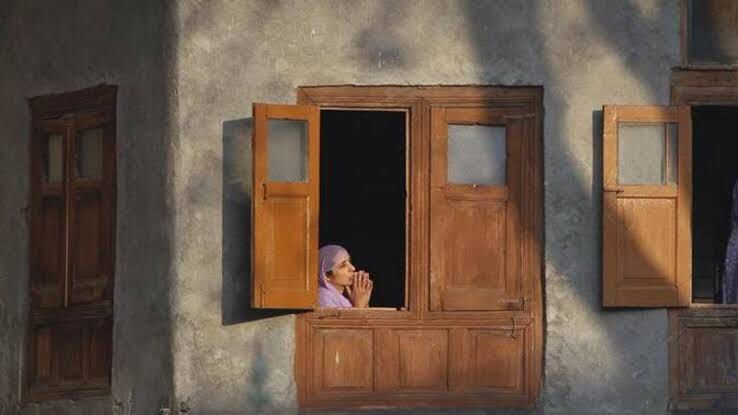
“…….” (Source: Dailyo.in)
In another twist of thoughts, however, I would not like to celebrate how they are still ”living”. Is this really how the modern world wishes to live? The answer is a blatant no. And so I don’t want them to live like they are from some other time period in history, or that they don’t have the same hopes, dreams, and wishes, and that they don’t share the same human rights as you and I do. This unrest has taken away a lot from them, their effort, time, lives have all gone waste, and I would simply not want this to continue.
Whataboutism And Reactance
Pathetically, however, countless people justify this loss. I come across them every day and everywhere. For them, it is very simple to ignore a lot of information. And their best tactic to use is what has now come to be known as “Whataboutism”. Present them with any proven fact, any media report (Note: Media not Modia), any personal experiences, and they will push all you have said down a gutter and say their favorite words, “What about……..?”. Usually what follows after is the 1990 exodus of Kashmiri pandits or Human rights violation in POK or Balochistan or the likes of them.
I am in no way undermining the intensity of these crimes. What happened in 1990 to Kashmiri Pandits, or what continues to happen in POK today is not even remotely justifiable. These would be written down as the most unfortunate events that have taken place in the history of humanity.
However, my question to these people still remains, how does any of this justify what is happening right now?

What About…..? (Source: sluggerotoole.com)
Whataboutism, also known as whataboutery, is a variant of the tu quoque logical fallacy that attempts to discredit an opponent's position by charging them with hypocrisy without directly disproving their argument. Oxford Dictionaries defines it as “the technique or practice of responding to an accusation or difficult question by making a counter-accusation or raising a different issue.” This tactic is particularly related to Soviet and Russian propaganda. When criticisms were leveled at the Soviet Union during the Cold War, the Soviet response would often be "What about..." followed by an event in the Western world. Since the cold war, Whataboutism has been in regular use, not only by the Russians, but by a number of politicians in the west and east, and also the “IT cell”.
Whataboutism, although it boils by blood, also intrigues me. In psychology, Whataboutism and partisan politics are examples of Reactance.

Reactance is a childhood Phenomenon. (Source: focusonthefamily.com )
Reactance is the motivation to re-assert freedom if we feel it is being threatened, by doing precisely the opposite of what we are told to do. Though often thought a childhood phenomenon, it is also prevalent in adult behavior, especially in today’s political atmosphere. The political stances and behavior these days have become less about one’s own principles and more about opposing or ”triggering” their opposition. This is the primary hazard of reactance; it is devoid of positive principle, and is, as the name would suggest, entirely reactionary.
It is usually not about an actual threat to our freedom so much as it is about who is doing the threatening. In a study, researchers found that when confronting subjects with the exact same threat, their participants only demonstrated reactance when the threat came from someone they perceived as an “other.” If it came from someone they perceived as “similar”, subjects didn’t consider it a threat. Simply, if they’re one of “ours,” it’s “okay and for the betterment” but if it’s one of “theirs” it’s “offensive and Kashmiris should go to Pakistan”.
The philosopher Merold Westphal said that only people who know themselves to be guilty of something "can find comfort in finding others to be just as bad or worse." The problem with whataboutism is that hypocrisy is a durable problem (humans being flawed and changing), but it is not the only problem. Forever circling around each other’s hypocrisies and wrongdoings pulls us away from important conversations about how to reach for, and enforce the values we aspire to, and hold each other accountable for misconduct. Whataboutism provides an excuse for our most powerful to evade self-reflection and self-improvement.
Why I wanted to address Whataboutism and how it is nothing but a fallacious attempt of winning an argument, is because there is too much of it everywhere. Whataboutism is covering the mainstream narrative or the lack of true narrative thereof. Somewhere it does color the opinion of those who stand on the neutral or uninformed ground and takes them to the “Bhagwa” side of the fence. And that is dangerous for reasons that you and I both are aware of.
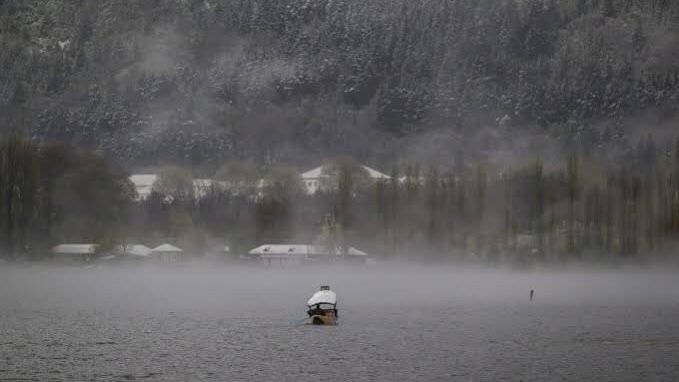
It’s been raining and snowing in the valley. (Source: telanganatoday.com)
Usually, I’m a very optimistic person, lately, however, that has changed. Being washed in hate narratives, justifications, fake-nationalist propaganda, continuous news of human rights violations has really made me doubt the good that is left in the world. I’ve seen so many of my friends, relatives breakdown that I’ve lost count of my first-hand experiences with utmost misery. To be honest, there is very little hope left.
And this little hope that is left comes to me from people who stand with Kashmir, who speak for Kashmiris, who admit that wrong is happening, who call out their fascist politicians, who take to the roads to protest against the violations, who donate for medical supplies and food, who share narratives from the valley, who have red profile pictures, etc. My heart goes out to you.
Please don’t stop speaking.
Paradise needs you.
Finally, on this hopeful note, a quote from Agha’s school friend, Faiz Ahmed Faiz-
“dil nā-umīd to nahīñ nākām hī to hai, lambī hai ġham kī shaam magar shaam hī to hai”
(I haven't lost hope, but just a fight, that's all;
the night of suffering lengthens, but it is just a night, that's all.)
